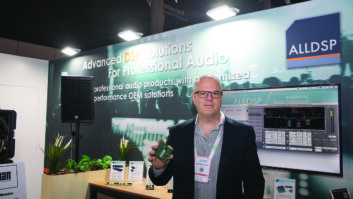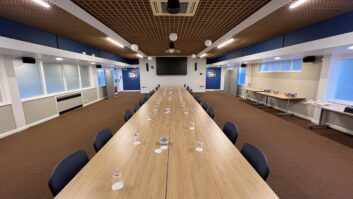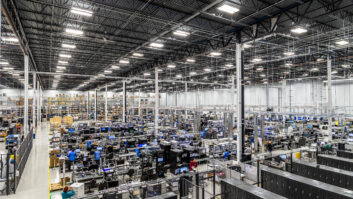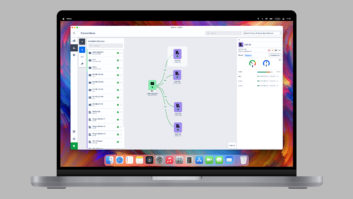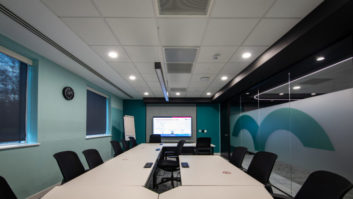In recent times, the trajectory of the Russian economy has been the subject of both feverish commentary and unabashed envy. From the low point of a nearly ruinous recession in the late 1990s, the country has surged forward thanks to a combination of pragmatic economic policy and the rapidly escalating value of its natural resources, chiefly oil and gas.
By 2006, the Russian economy was growing at nearly 7% per year, while GDP had soared to $984billion – almost three times the equivalent figure in 2002. With debt levels also brought down from their previous sky-high levels, and an exacting programme of public reforms in place, the outlook was emphatically positive.
However, although the basic platform for growth remains secure, there is now an increasing sense of trepidation about the immediate future. Writing about the global economic crisis at a time when its full extent is still unknown is highly problematic, but it’s reasonable to assume that – like all other countries to have embraced the open markets and economic deregulation – Russia is now heading into a more uncertain phase.
Simultaneously, the relationships between the Russian government and the West, and with a number of the country’s near-neighbours – always precarious since the arrival of Vladimir Putin as president in 2000 – have become increasingly strained.
While US and European governments have long expressed concerns about Russia’s resurgent militarism – the country’s defence expenditure is believed to have quadrupled since the dawn of the millennium – the recent war in South Ossetia took the issue to a whole new level. Although a resolution to the crisis was accomplished relatively quickly, the fear that a more serious episode could occur has not gone away.
Putin’s continuing presence in high office – as prime minister, working alongside new president Dmitry Medvedev – also remains a source of irritation to some Western politicians.
Willing to invest
It’s difficult to assess the likely long-term impact of these various developments, so it probably makes sense to focus initially on the present and immediate future – which, it is clear, offer plenty of cause for celebration.
New and revamped schools, colleges, business centres, offices, factories and residential complexes are just some of the results of a construction boom that continues to generate rewarding opportunities for professional installers and suppliers, many of whom were out in force at the recent Integrated Systems Russia (ISR) event in Moscow.
“Russia is one of the fastest-growing markets in Europe and will become one of the largest in the next five years,” says Jerome Gueras, vice president of sales, EMEA for professional AV systems integration product manufacturer Extron. “System integrators face many of the same challenges and design requirements as other countries throughout Europe, [and] as designs become more sophisticated, so will the demand for cutting-edge, turn-key solutions.”
US-based professional audio manufacturer Meyer Sound also recognises the surging demand for high-quality systems in Russia and its surrounding territories. “The increased awareness of quality in audio systems in the former CIS region has created a sustained growth of projects using integrated solutions from Meyer Sound,” says a company spokesperson.
Without doubt, sustained investment in the public sector has played a decisive role in the expansion of the Russian installation business. Telecommunications/AV equipment distributor AVICON Technologies is one of the companies to acknowledge the trend.
“AVICON’s main customers are system integrators which co-operate closely with different governmental and state agencies, such as local governments, police departments, and so on,” says sales director Artem Budzko. “At the moment, situation centres for governors and authorised regional representatives of the president represent the market segment with the greatest growth potential.”
Dr Elena Novikova, chief executive of Polymedia JSC – a projection equipment reseller and integrated solutions provider that works with brands including Mitsubishi Electric, SMART Technologies and Crestron – also strikes an upbeat tone. “Customers have a lot of money to spend on exclusive projects, and we are continually being asked to create evermore innovative solutions for our customers,” she says.
Once again, government-related projects are particularly numerous. “At the moment, our company is mainly focused on solutions for state and regional government, such as command and control centres. Considerable sums are also being invested in education – we are working on several projects for universities and high schools – and this is a very important and fast-growing sector,” says Novikova.
New sports arena projects are also competing for Polymedia’s attention, while the company recognises an increasing demand for LED and digital signage applications – the latter prompting a collaboration with Mitsubishi Electric and C-nario that has enabled it to offer a complete hardware and software solution.
Pro-audio and musical instruments distributor MixArt Distribution highlights the impact of continuing growth across the real estate and construction businesses, with the hotel sector among the beneficiaries. “Currently, the government of Moscow finances the construction of new hotels in the framework of the programme of tourism development,” explains MixArt’s general director, Dmitry Modin.
“They get financial support from the federal government which, combined with money from the city’s own budget, lays the foundation for the development and modernisation of the hotel infrastructure.”
Integrated systems
Representing brands including Audio-Technica, Allen & Heath, Penton and K.M.E., MixArt also recognises a growing trend for fully integrated solutions that, for example, can satisfy PA, background music and voice evacuation applications. While Modin does highlight some fundamental problems with the Russian install market – not least the ongoing skills shortage – he thinks that it will nonetheless “continue growing at the same or a faster pace” over the next few years.
Systems integrator Viking is also deriving benefits from ongoing growth in various areas of the Russian install market. Based in St Petersburg and focused on presentation technologies, Viking is an official partner of brands including Panasonic, Sony and Mitsubishi Electric, and in more recent years has developed interests in design and installation.
Management centres, control rooms, conference facilities, educational establishments and museums are just some of the applications fuelling the company’s expansion.
“The installation market in Russia has developed considerably during the past few years,” confirms Viking’s vice president, Felix Tochansky, before going on to cite a number of contributory factors. These include economic growth, a marked increase in the number of installation companies, and a growing awareness of the importance of high-quality systems.
Display technology demand
One of Viking’s brand partners, Mitsubishi Electric, also confirms the abundance of high-quality professional display equipment in the country’s governmental and corporate sectors.
“This includes projectors and LCD screens for conference halls and other business applications, video walls for command and control centres and situation rooms, and high-end LED screens for lobbies or TV studios,” says Michael Nevzorov, regional manager (Russia & CIS), display engineering department, Mitsubishi Electric Russia. “Customers in the field of educational displays and advertising, however, tend to be a little more price-conscious.”
Present in the Russian market for more than 10 years, Mitsubishi Electric has established a strong network of ‘first-line’ integration partners, and is currently focusing on strengthening its links with regional installers and small system integrators.
“Moscow and St Petersburg, being the two federal cities of the country, are of course the most advanced in terms of their adoption of high-tech [systems],” reveals Nevzorov.
“At the same time, we observe growing demand for high-quality AV products from the regional centres such as Kazan (especially educational displays), Yekaterinburg, Chelyabinsk, Novosibirsk, Khanty-Mansijsk (command and control centres for the oil and gas industries, heavy machinery, and so on), and Sochi (displays for sports venues).”
While the display wall cube range has traditionally been the company’s most high-profile offering, it is also registering an increasing demand for LCD and LED screens.
Interest from government and corporate organisations is by no means restricted to visual technology, however, as conference solutions supplier Danish Interpretation Systems (DIS) has been discovering.
Having put a new sales strategy in place, the company is reaping the rewards of a robust congress market, with demand for its DC 6990P touchscreen conference unit proving to be particularly encouraging.
“Many Russian companies are interested in high-profile, high-technology quality products,” explains area sales manager Angelika Oernfelt.
While DIS already has partnerships in Russia with a distributor (EMAG) and integrators (including the aforementioned Polymedia), it is now actively seeking to enlarge its pool of collaborators. In this regard, the company’s showroom facility at its European office in Brussels has been invaluable in communicating the benefits of its various conferencing solutions.
Challenging sector
Even so, Oernfelt admits that the company is still at a relatively early stage of development in this competitive market. “Russia is a high priority and we are only at the beginning of our journey in the Russian market, [although] we have started to get a good reputation,” she says.
“It is a huge job to get a reasonable market share and to be satisfied with our position [in Russia] compared with our general international position. The [altered] strategy of distribution and the [willingness] to try different ways of business will surely bring us a huge step forward when it comes to realising our ambitions.”
Loudspeaker brand and Harman Pro family member JBL is also enjoying strong sales in Russia – and in some of the other former Soviet Union territories, too. Cinema complexes, nightclubs, shopping malls and hotels are just some of the project types to have generated orders in recent times, while sports arenas are highlighted as a potential source of growth in the coming years.
Despite this, JBL’s director of sales – Europe, Martin Seidl, does express concerns about Russia’s political and economic future. While major public sector projects – notably the 2014 Winter Olympics to be hosted by the city of Sochi – have kept the installation business relatively buoyant, “the tempo and the dimensions of public investments have substantially decreased over the last 10-15 months. This negative trend started with the end of Putin’s presidential era and the transition to Medvedev.”
Wider economic challenges
The ensuing global financial crisis hasn’t exactly helped the situation; instead it is serving as a major impediment to private sector projects. “Private investments, in particular, became extremely expensive due to the cost of fund-raising,” confirms Seidl. “Interest rates for lending money increased to more than 20%, [while] projects that did materialise were mainly driven by foreign investments from global companies, for example hotel chains.”
Nonetheless, Seidl believes that there is still considerable potential for the loudspeaker brand in the Russian market. “JBL offers the widest range of non-powered and powered installation speakers in the industry, making us [more than] fit to meet the requirements of the demanding Russian market,” he says.
Interestingly, Seidl also believes that one of the keys to future success will be the provision of training to local system designers and factory support for elaborate installation projects. As it happens, training is identified as a headline priority for the Russian market by several of our interviewees, several of whom are also taking steps to address the issue.
They include AVICON Technologies, which operates its own dedicated training facility. While primarily targeting videoconferencing specialists seeking to retrain or enhance their qualifications, the AVICON Training Centre also offers distance learning. “There are special training programmes developed by equipment manufacturers for both technicians and sales people,” explains Budzko.
“The classroom is equipped with the full spectrum of training and telecommunications equipment, making it equally suitable for both lectures and workshops, with maximum comfort for the students. [In addition] the students are provided with all the necessary books, manuals and other training materials.”
Like many other manufacturers based outside of Russia, Extron provides dedicated sales and technical support. “To overcome language barriers, Extron has sales and technical support teams that are fluent in Russian, and will soon provide brochures and a website in the local language,” says Gueras. “We also debuted our first Russian catalogue at the recent Integrated Systems Russia event.”
Maturing market
While there is little doubt that Russia is embarking on a more unpredictable phase after a period of quite phenomenal growth, it also equally transparent that the country is continuing to support an increasingly mature installation marketplace.
In contrast to a number of European nations where state investment is the subject of significant reductions, public spending in Russia remains high, with major infrastructural projects continuing to receive the green light. Private investment, too, remains set on an upward trajectory, thanks to the efforts of both homegrown enterprises and foreign firms.
In short, the overriding impression is that, whatever challenges may lie ahead, Russia – along with China and India – remains the emerging market to watch.
